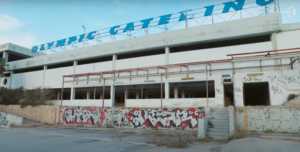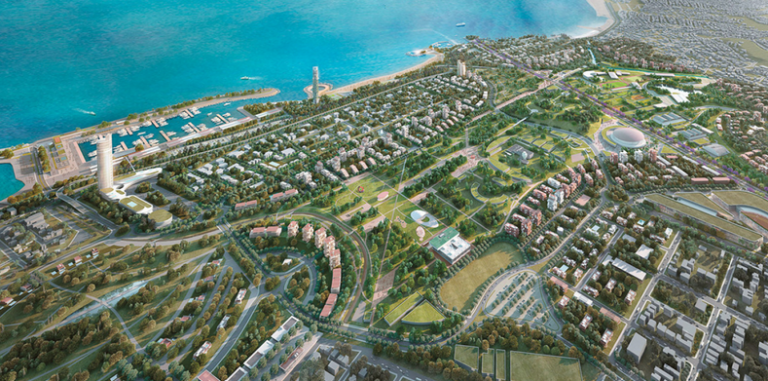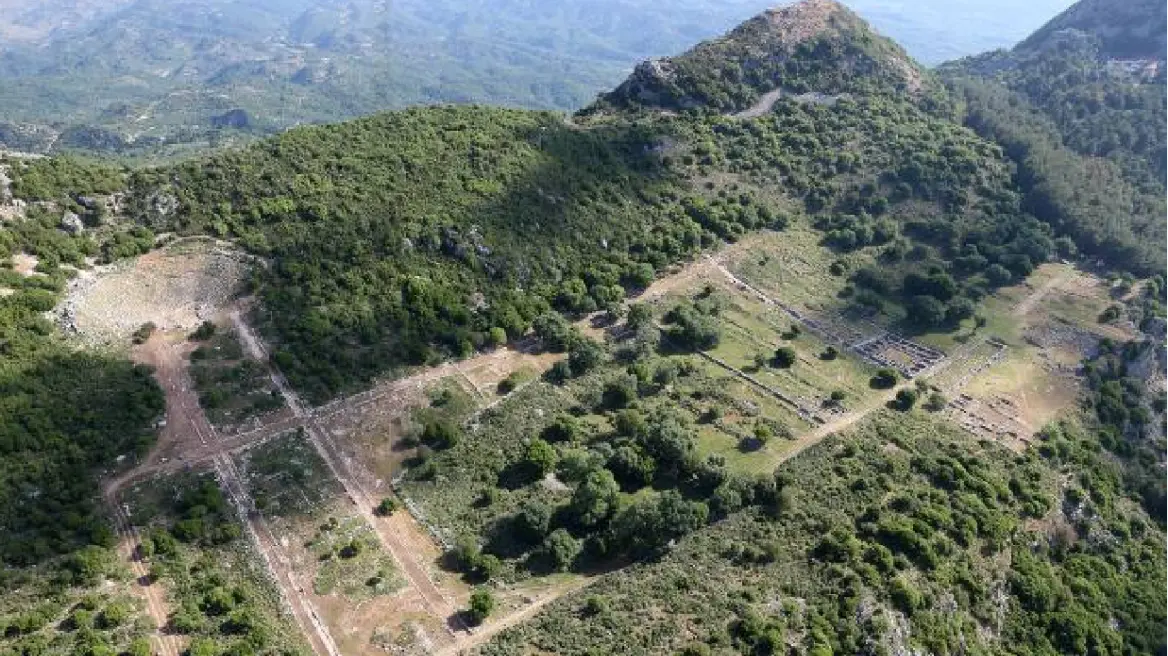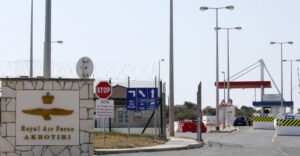In the mega investment of the former Εllιnikon airport, Lamda Development is currently in talks with a foreign institution for the concession of land to establish a non-state university. Similarly, in the neighborhood of Εllιnikon, in the former Olympic Catering building, on-site visits are already taking place for the renovation of the property that will host the first non-state Medical School.
Furthermore, in an earlier stage are the discussions being conducted by Dimand for a portion of the new complex that will be developed on the former Athenian Paper Industry property in Botanikos, as part of the large redevelopment project undertaken by the company, which could also be combined with student housing.
The educational real estate sector is already bringing and is expected to bring new deals to the domestic property market, whether it is branches of foreign universities seeking accommodation for non-state institutions under the new institutional framework, or public educational institutions that have gone through tenders and are seeking buildings to meet their housing needs, or even projects in the challenging area of student housing, where there is a significant shortage both within and outside Athens.
Based on the requests received at the offices of major real estate consultants, there are two categories of demands: the first for relatively smaller buildings, around 4,000-5,000 square meters, and the second for larger ones, over 7,000 square meters, mainly focusing on Athens and Thessaloniki. “Priority is given to central neighborhoods, although this is not a necessary condition, as long as there is a nearby metro station or dense bus connection,” commented a top executive of the domestic real estate market in “business stories”.
The market’s stamp and prospects were recently given by Nikos Stathopoulos, managing director and shareholder of BC Partners, whose portfolio currently includes over 120 investments in 18 countries, with over 6 billion euros invested in Greece alone in the last 18 years in 5 different sectors.
Today, in the group’s portfolio in our country, apart from Nova and Pet City, in the telecommunications and pet market sectors respectively, there is also the Metropolitan College with AKMI Colleges in the private education sector, as he mentioned at the Delphi Forum himself: “The sectors that are interesting for investment are those that have resilience, further development capabilities, export profiles, and sectors which – without any structural cause – are lagging behind in Greece compared to other European and American countries and have a lot of future. Such an example is exactly that of private education”.

(In the neighborhood of Elliniko, the first non-state Medical School by the Hellenic Healthcare Group (HHG) is already being prepared, through the investment capital of CVC Capital Partners, in collaboration with the University of Nicosia. The former property of Olympic Catering, with a built area of 8,000 sqm, has already been purchased, which will be fully renovated)

Discussions on the first deals
At this stage, however, an interesting new development is that Lamda Development, the investment entity for the mega-project at Elliniko, is already in talks with an interested foreign “player” for the creation of a non-state university. Earlier this year, representatives of international academic institutions were already given tours of the project under development, as the master plan includes areas designated for Education and Research & Technology, in two separate zones, towards Vouliagmenis Avenue and near the metro.
Currently, substantial discussions are underway regarding the request for building space for over 20,000 square meters, which will comprise a complete campus, lecture halls, laboratories, etc. If this agreement proceeds, it’s very likely that independent student housing projects will also be developed within the area, either autonomously by Lamda Development itself or even in collaboration with a third party.
Meanwhile, preparations are already underway for the first non-state Medical School in the vicinity of Elliniko, by the Hellenic Healthcare Group (HHG), through the investment capital of CVC Capital Partners, in collaboration with the University of Nicosia. As part of this collaboration, HHG is acquiring the former Olympic Catering property in Elliniko. The property, with a built area of 8,000 square meters, will be fully renovated, and top architectural firms are currently conducting site visits for design and submission of final proposals.
In a more preliminary stage, Dimand is in talks for housing branches of foreign universities in two of the leading redevelopment projects of former industrial properties currently underway in Athens, at the former Athens Paper Mill (Softex), with a development value of 189 million euros, and in Thessaloniki, at the former Fix Brewery, with a value of 148 million euros. Notably, the significant project at the former Athens Paper Mill, near Iera Odos, in Elaionas, will have a mixed-use character and will include office spaces (with leasing agreements already in place for the first 15,000 square meters out of the total 50,000 square meters).
The investment aims to change the landscape of the entire area, which is in dire need of revitalization. “Since the law for non-state universities was passed, we have been discussing educational uses, already having contacts for the creation of private campuses,” according to Mr. Dimitris Andriopoulos, CEO of the renowned development company. “The project lends itself to such uses due to easy access by public transportation (Kerameikos metro), close proximity to the center of Athens, 2.5 kilometers away, and adjacency to the Agricultural University,” he adds. The location of the property could indeed be combined with a separate student housing project, also serving the Agricultural University.
Scientists accidentally discovered a new organ in the human body that had never been observed before
Moreover, the student housing sector appears to be another area with significant potential for market players, as “even without the new institutional framework for non-state universities, there is a great overall need for student housing and a significant deficit,” states Mr. Kostas Markazos, CEO of Premia Properties SA. The latter has already invested significantly in this sector, with private student residences in Athens, Thessaloniki, Patras, and Komotini, highlighting the difficulty of the undertaking due to cost and the lack of larger properties, especially in Athens.
This is also one of the main reasons why major institutional names in domestic real estate—such as the largest domestic Real Estate Investment Company, Prodea Investments SA, or the foreign investment firm Hines, which indeed has some of the leading student housing projects in other European markets—have expressed interest in large-scale projects, yet have lagged behind in their planning.
A significant presence in the student housing sector is also expected from Intrakat, through the two SDIT competitions for student housing in Crete and Thessaly, which started back in 2020 with Intrakat as the contractor. The total cost of the two competitions is 370 million euros (255 million for the University of Crete and 116 million for the University of Thessaly), and they are likely to be signed by the summer, as they are now in the financing stage. Additionally, Intracom Properties is investing in student housing by converting former warehouses in its ownership in Tauros, adjacent to the Harokopio University and with easy access to the University of Piraeus, the University of Western Attica, and the port of Piraeus. Similar is the case with DKG Development, which has various projects of serviced apartments in Athens, including Moschato Hive and The Laurel in Dafni, in close proximity to the School of Physical Education and Sport Science of the National and Kapodistrian University of Athens (NKUA).
In the “battle,” the public sector is also involved in the search for building infrastructure, either through ongoing competitions or through funds approved for this purpose. Among the most significant competitions currently underway is one by the Hellenic Open University (HOU), which plans to allocate €11.6 million for the purchase of modern property in Athens “within the municipality’s boundaries, in the city center, within a radius of up to 2.5 km from Omonia Square and on a central avenue,” in order to house the institution’s facilities.
The relevant funding will be allocated from the Public Investment Program of the sectoral development program of the Ministry of Education (MoE). The scheduled deadline for submitting bids is late April, while the property for purchase covers an area of at least 3,500 sqm and according to the relevant announcement, it must be delivered turnkey. Another competition currently underway in Thessaloniki with a lower budget, up to a maximum of €1.8 million, with the estimated expenditure to be covered by the Public Investment Program, is by the Aristotle University for the purchase of property to meet the housing needs of the Department of Cinema of the School of Fine Arts of AUTh, with a minimum total area of 4,000 sqm (with the possibility of an additional 20%). The competition will be held publicly before the competent committee in mid-May, on the 14th.
Meanwhile, a budget of €13.5 million has already been approved by the MoE for the Athens University of Economics and Business (AUEB) for the purchase of property to expand the operational and educational needs of the institution. This concerns a new building with a preserved section at 72 Patision and Antoniadou 4, owned by E. Goulandris, which is adjacent to AUEB. Based on the relevant proposal and study, a modern, energy-efficient building will be constructed as an addition to the existing traditional property and will be delivered to the university turnkey. The University Senate has approved the said property as the most suitable option given that it is a building that will be primarily constructed for educational use from the outset and will utilize the existing central building of AUEB due to its location.
In the same area, on Patission Street 91-93, another competition is currently underway by the Welfare Fund for Employees in Security Corps (TEAPASA) for the long-term lease of the property for 40+10 years with the purpose of constructing a building and utilizing it by the private individual who will undertake it. According to the announcement, bids are to be submitted by June 21, and there are three proposed alternatives: either for mixed-use of offices and stores with a proposed investment program of €20 million for the building complex, or for independent construction of stores with a minimum investment height of €3.8 million, or for hospitality with a minimum investment height of €22 million. Even though strictly educational use is not envisaged in the competition, there could still be proposals to function as complementary.
Ask me anything
Explore related questions





